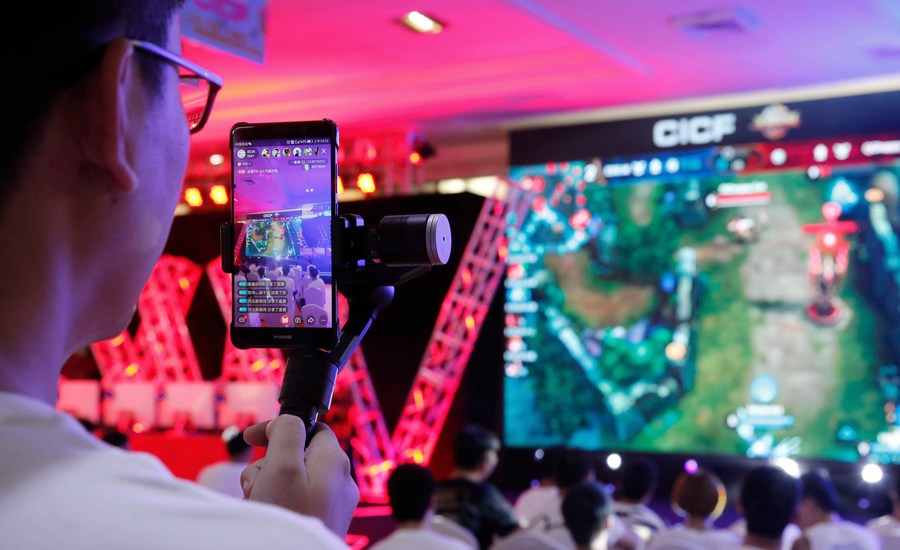China sets limits for minors' online gaming time over addiction concerns
- By Zhu Bochen
 0 Comment(s)
0 Comment(s) Print
Print E-mail China.org.cn, September 6, 2021
E-mail China.org.cn, September 6, 2021

The National Press and Publication Administration (NPPA) issued a circular on Aug. 30 to further tighten management of minors' videogaming activities and reduce their time playing online games to a maximum of three hours per week.
Starting from Sept. 1, video game companies in China are required to limit under-18s to one hour of online gaming access from 8 to 9 p.m. on Fridays, Saturdays, Sundays as well as national holidays, said the circular.
To prevent online gaming addiction among minors, the circular requires all video games to adopt the NPPA's real-name registration system, as well as urge all users to log in using their own identity.
In addition to asking relevant administrative bodies to step up supervision and ensure the measures have been put in place, it further calls for families, schools and other sectors of society to take their due responsibilities and jointly build a healthy environment for children.
Shortly after the circular was issued, major video game companies in China — such as those affiliated with Tencent, NetEase and ByteDance — have all vowed to fulfill their corporate social responsibility and implement the anti-addiction measures in accordance with the NPPA's latest requirements.
Tencent Games, for instance, released its new children protection plan as the company's annual charity festival kicked off on Wednesday. This year, it has built 100 high-tech classrooms and 100 playgrounds for students in both urban and rural regions, hoping to offer children more alternatives both academically and physically to video games.
According to a news release from the company, it has been working on the technical front for years to restrict minors' gaming activities. It was also one of the first to use facial recognition technology to prevent youngsters from using their parents' identity for gaming. Statistics from the company show that in July 2021, an average of 8.25 million accounts per day triggered facial recognition inquiries during the login process, with 92.4% of these accounts being included in the anti-addiction system after failing to pass the user identification step.
Tencent Games says it also offers one-on-one counseling services to help improve parent-child relationships in case of video game-related problems.
However, there are also concerns that the restrictions may lead children to look for other forms of digital entertainment, such as livestreaming platforms or short video apps, which could be even more addictive.






Go to Forum >>0 Comment(s)